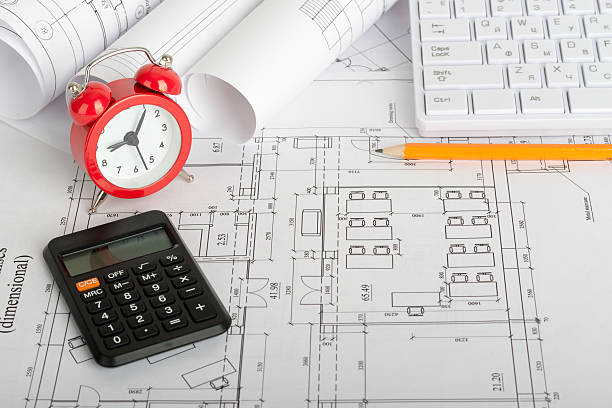Mastering Construction Estimating: Essential Tips and Best Practices

In the world of construction, accurate estimating is the cornerstone of a successful project. Whether you are a contractor, project manager, or client, understanding the intricacies of construction estimating can save time, money, and resources. In this blog, we will delve into the essential tips and best practices for mastering construction estimating, ensuring your projects are completed on time and within budget.
What is Construction Estimating?
Definition and Importance
Construction estimating is the process of predicting the costs associated with a construction project. This includes everything from materials and labor to equipment and overhead costs. Accurate estimates are crucial because they form the basis for project bids, budgets, and financial planning. An underestimated project can lead to cost overruns, delays, and disputes, while an overestimated project may result in lost bids and opportunities.
Different Types of Estimates
-
Preliminary Estimates: These are rough estimates made in the early stages of a project. They are based on limited information and are used to determine the feasibility of a project.
-
Detailed Estimates: As the name suggests, these estimates are more comprehensive and detailed. They are based on complete project plans and specifications and include detailed breakdowns of all costs.
-
Conceptual Estimates: These are made during the conceptual phase of a project when detailed plans are not yet available. They rely on historical data and experience to provide a rough cost estimate.
Role of Estimators
Estimators play a crucial role in the construction industry. They are responsible for analyzing project plans, conducting site visits, gathering cost data, and preparing accurate estimates. Their work is essential for setting realistic budgets, securing project financing, and ensuring project profitability.
Key Components of a Construction Estimate
Material Costs
Materials make up a significant portion of construction costs. Accurate estimation of material costs involves determining the quantities needed and sourcing price information from suppliers. It’s important to consider factors such as material quality, availability, and transportation costs.
Labor Costs
Labor costs include wages, benefits, and other compensation for workers. Estimating labor costs involves determining the number of workers needed, their skill levels, and the time required to complete the work. It also involves accounting for factors such as overtime, labor shortages, and regional wage variations.
Equipment Costs
Equipment costs include the purchase, rental, and operation of machinery and tools needed for the project. Estimators must consider the type and quantity of equipment required, as well as maintenance, fuel, and operator costs.
Overhead and Profit Margins
Overhead costs include indirect expenses such as office rent, utilities, insurance, and administrative salaries. Profit margins are the desired profit on top of the estimated costs. Accurately estimating these costs ensures the project is financially viable and profitable.
Contingencies and Risk Management
Contingency allowances are included in estimates to cover unexpected costs and risks. These can include unforeseen site conditions, design changes, and other uncertainties. Effective risk management involves identifying potential risks, assessing their impact, and planning for contingencies.
Steps to Create an Accurate Construction Estimate
Reviewing Project Plans and Specifications
The first step in creating an accurate estimate is thoroughly reviewing the project plans and specifications. This involves understanding the scope of work, identifying all project components, and noting any special requirements or constraints.
Conducting Site Visits and Assessments
Site visits are essential for gathering information about the project’s physical conditions. This includes assessing the site’s topography, soil conditions, accessibility, and existing structures. Site assessments help identify potential challenges and ensure the estimate accounts for all site-specific factors.
Gathering and Analyzing Cost Data
Accurate cost data is essential for reliable estimates. This involves gathering information on material prices, labor rates, equipment costs, and other expenses. Estimators use historical data, supplier quotes, and industry benchmarks to analyse and validate cost information.
Using Estimation Software and Tools
Modern estimation software and tools streamline the estimating process and improve accuracy. These tools allow estimators to create detailed cost breakdowns, perform quantity takeoffs, and generate reports. They also facilitate collaboration and data sharing among project stakeholders.
Reviewing and Refining the Estimate
Once the initial estimate is prepared, it should be reviewed and refined to ensure accuracy. This involves cross-checking calculations, validating assumptions, and incorporating feedback from project stakeholders. Regularly updating and refining the estimate throughout the project helps maintain accuracy and address any changes or new information.

Construction Cost Estimation
High Q Estimation LLC Provides the most accurate estimates for All types of Commercial & Residential, Renovations & New construction Projects.

Quantity Takeoff
We offer break down the project into individual components (e.g., materials, labor, and equipment) and quantify each of them.

Project CPM Scheduling
We are providing Critical Path Method scheduling services to our respected clients for better understanding of their project’s timeline.

Bid Winning Plan
If you want to win a bid, you are at the right place. We guarantee our Bidding estimates helps you win bids. Hire us full time or for a single project to get most competitive numbers.
Common Challenges in Construction Estimating
Unforeseen Site Conditions
Unforeseen site conditions, such as hidden utilities, contaminated soil, or unstable ground, can significantly impact project costs. Accurate site assessments and contingency planning are essential for mitigating these risks.
Fluctuating Material Prices
Material prices can fluctuate due to market conditions, supply chain disruptions, and other factors. Estimators must stay informed about market trends and include allowances for price fluctuations in their estimates.
Labor Shortages and Wage Variations
Labor shortages and regional wage variations can impact labor costs and project schedules. Estimators should account for these factors by researching local labor markets and adjusting labor rates accordingly.
Changes in Project Scope
Changes in project scope can lead to cost overruns and delays. Clear communication with clients and stakeholders, along with thorough documentation of scope changes, helps manage these challenges.
Best Practices for Effective Construction Estimating
Keeping Up with Industry Trends and Cost Data
Staying informed about industry trends, new materials, and construction methods helps estimators make accurate and up-to-date estimates. Regularly updating cost databases and attending industry events and training can enhance estimating accuracy.
Building Relationships with Suppliers and Subcontractors
Strong relationships with suppliers and subcontractors provide access to reliable cost information and potential discounts. Collaborating with trusted partners helps ensure accurate material pricing and availability.
Regularly Updating Estimation Tools and Software
Using the latest estimation tools and software improves efficiency and accuracy. Regularly updating these tools ensures estimators have access to the latest features, cost data, and industry standards.
Implementing a Systematic Review Process
A systematic review process helps identify and correct errors in estimates. This involves regular peer reviews, cross-checking calculations, and validating assumptions with project stakeholders.
Training and Continuous Education for Estimators
Continuous education and training for estimators help them stay current with industry developments and improve their skills. Investing in professional development ensures estimators can produce accurate and reliable estimates.
The Future of Construction Estimating
The Role of Technology and Automation
Advancements in technology and automation are transforming construction estimating. Tools like Building Information Modeling (BIM), artificial intelligence, and machine learning enhance estimating accuracy and efficiency. These technologies enable real-time data analysis, automated quantity takeoffs, and predictive cost modeling.
The Impact of Sustainable Building Practices
Sustainable building practices are becoming increasingly important in construction. Estimators must consider the costs and benefits of sustainable materials, energy-efficient systems, and green building certifications. Incorporating sustainability into estimates ensures compliance with regulations and meets client expectations for environmentally responsible projects.
Trends in Construction Management and Estimating
Emerging trends in construction management and estimating include the use of cloud-based collaboration tools, integrated project delivery methods, and lean construction principles. These trends promote efficiency, reduce waste, and improve project outcomes.
High Q Estimation
If you need professional construction estimating services, contact High Q Estimation today. Our team of experienced estimators is ready to help you achieve success in your construction projects. With our expertise and commitment to accuracy, we ensure your projects are completed on time and within budget.
Conclusion
Mastering construction estimating is essential for the success of any construction project. By understanding the key components, following best practices, and staying updated with industry trends, you can ensure accurate and reliable estimates. Implementing these strategies will not only help in winning bids but also in managing projects efficiently, leading to higher profitability and client satisfaction.
Accurate construction estimating requires a combination of technical skills, industry knowledge, and attention to detail. By investing in professional development, leveraging technology, and building strong industry relationships, you can enhance your estimating capabilities and contribute to the success of your construction projects.
